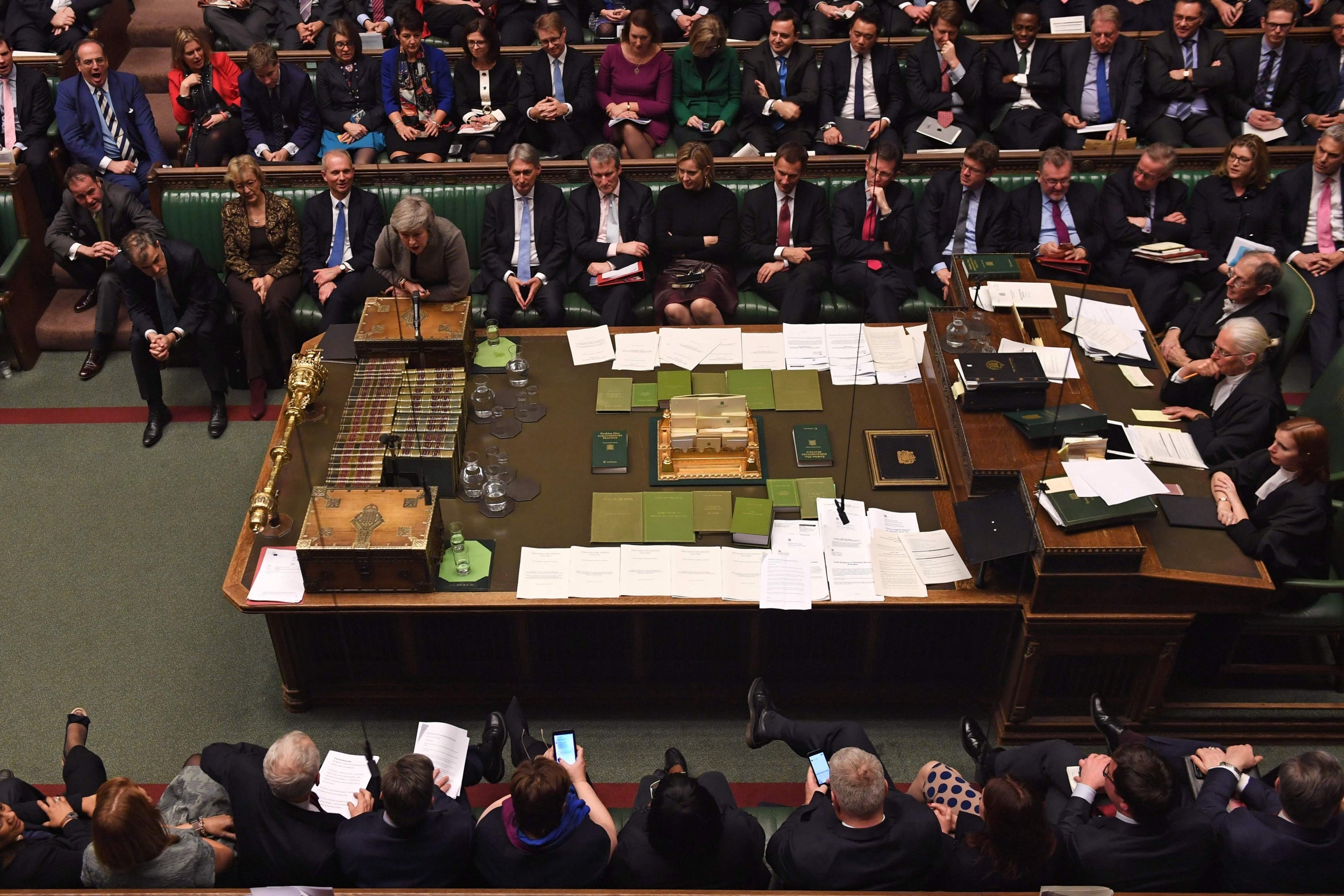Baby leave rules are a test of parliament’s commitment to equal rights
The Independent is not in favour of electronic voting in the House of Commons, but proxies would be a sensible reform

Your support helps us to tell the story
From reproductive rights to climate change to Big Tech, The Independent is on the ground when the story is developing. Whether it's investigating the financials of Elon Musk's pro-Trump PAC or producing our latest documentary, 'The A Word', which shines a light on the American women fighting for reproductive rights, we know how important it is to parse out the facts from the messaging.
At such a critical moment in US history, we need reporters on the ground. Your donation allows us to keep sending journalists to speak to both sides of the story.
The Independent is trusted by Americans across the entire political spectrum. And unlike many other quality news outlets, we choose not to lock Americans out of our reporting and analysis with paywalls. We believe quality journalism should be available to everyone, paid for by those who can afford it.
Your support makes all the difference.Video footage of Jeremy Corbyn was unearthed this week, dividing opinion on social media. It was of him as a Labour backbencher in 1994, acting as a teller for a vote in the House of Commons on a frivolous question put by a Conservative MP, proposing to ban French words in retaliation for an edict by the French authorities against English ones.
The disagreement arose, not over the silliness of the motion, but over Mr Corbyn’s refusal to bow in the direction of the speaker’s chair, as tellers traditionally do. For some, this was a failure to show respect for the institution of democracy; for others, it was justified stand against ritual and flummery.
The Independent tends to the view that a bit of ritual is harmless but that parliament needs to modernise. A lot has changed in the 25 years since that video, which also features a Conservative MP being required to wear a top hat to make a point of order during a division. But there is still a lot to do.
As we report today, a group of women MPs is demanding a baby leave system of proxy voting for expectant and new parents. The plan was agreed by MPs 11 months ago but has still not been brought in. “It has been kicked into the long grass,” Maria Miller, the Conservative chair of the Women and Equalities Committee, told The Independent. As she said, this is “shameful”.
The idea of proxy voting for MPs is a sensible compromise. In clearly defined cases, mothers and fathers of babies would be entitled to nominate another MP to vote for them. This would not detract from the traditional requirement for most MPs to vote in person. We agree that this is a valuable feature of the British parliamentary system. It makes ministers more accountable to the House of Commons and encourages informal dialogue, including across party lines. That is why we do not favour electronic voting, as used in the European parliament and other assemblies.
Proxy voting would be a minimal reform, and an improvement on the informal system of pairing run by the party whips. It was the breakdown of a pairing agreement in July that contributed to the pressure for change. Brandon Lewis, the Conservative Party chairman, broke an agreement with Jo Swinson, the Liberal Democrat deputy leader who had recently given birth, not to vote in a crucial Brexit division. The government won by six votes, so Mr Lewis’s vote did not affect the result, but the principle is important.
Some MPs have cavilled at the proxy voting plan, saying it will open the way for demands from other MPs to be excused attending votes. But that too would be sensible, within reason. It should not be beyond the wit of parliament to devise a fair system that would allow sick MPs to have proxy votes and to end the practice of bringing seriously ill people to the Palace of Westminster for important divisions.
The important thing is to bring in the proxy vote principle, and then to refine the rules in practice.
Unfortunately, the foot-dragging on this rather minor reform seems to be part of the wider failure of MPs and the House authorities to bring parliament up to date as a place of work. The backlog of allegations of bullying and sexual harassment, against the House collectively and against MPs individually, has not been dealt with quickly enough or vigorously enough. Indeed, in one respect the House of Commons has gone backwards, by granting anonymity to those MPs accused of wrongdoing, a retrograde step that goes against the longstanding principle of open justice.
Let us hope that the new year sees urgent action from John Bercow, the speaker, Andrea Leadsom, the leader of the Commons, and the parties’ chief whips. The women’s caucus of MPs has set a deadline of 1 February for the introduction of proxy voting. Let that be a test of the authorities’ sincerity about reform.
Join our commenting forum
Join thought-provoking conversations, follow other Independent readers and see their replies
Comments